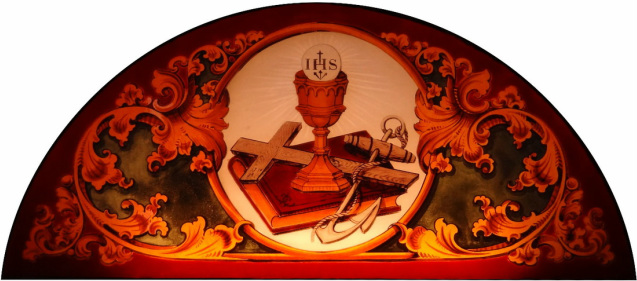Judgment
Who was the great general who conquered the whole world and then sighed for more worlds to conquer? No, not Napoleon. Here are some hints. He was a Greek general. . . conquered the Persians. . . before Christ was born — Alexander the Great. You have heard of him.
Alexander was a pagan and a merciless conqueror. Yet when he took a city, instead of putting the people to the sword, as other conquerors did, he had his own way of dealing with them. Alexander would march into the conquered city and set up his judgment seat. Then he would take a candle (a small candle just like this one) and light it—(like this). The herald would then proclaim to the people, "All who have committed crimes against Alexander the Great, must kneel before him and confess their crimes while the candle burns. As long as it burns you will be forgiven. When it has burned itself out, do not look for mercy." The citizens of the fallen city would then come forward to confess their crimes and the general would forgive them. After the candle burned out, no mercy was shown. Guilty ones were punished with death.
The lesson in this story is an easy one for you to draw out. The candle in the story is the flame of life. You have all heard life compared to the flame of a candle haven't you? The rest is easy. As long as the flame of life burns in the candle, you may confess your crimes against Christ the King and be forgiven. When the candle goes out -- what does that stand for? Death. After death there is no mercy. Mercy belongs on this side of the grave. Beyond the grave justice reigns.
"It is appointed unto all men — once to die, and after death — the judgment." We will be asked to give an account of our stewardship. Have we loved Christ? Have we built our souls into little images of Him? Have we left our images to be spoiled by sin? All these questions will be asked at the judgment. A child who has done his or her best need not be afraid. If our souls look like Christ's then God will recognize us as His own. As souls come to be judged, God asks them, "Do I see the image of my Son in you?" If you have tried to make your souls like to Christ, God will see His Son in you and welcome you to heaven for all eternity. If He does not He will banish you out of His sight forever. Keep this in mind when you are tempted. Think often about the judgment. Remember that you must account for each misdeed. Remember thy last end and thou wilt never sin.
Source: Heavenwords, Imprimatur 1941

 RSS Feed
RSS Feed